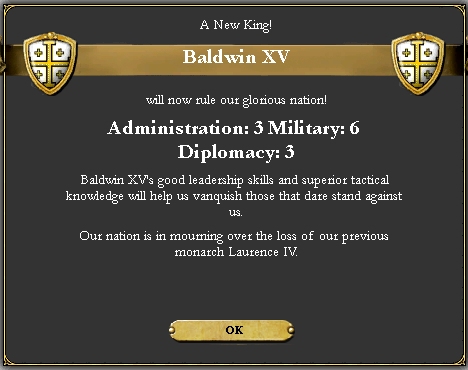Part 23: XXIII. Martin IV, Laurence IV 1762-1788 A.D.
The flames of freedom continued to burn in Nicholia. In June of 1762, Leon's colonies in the lands they had taken from the Aztecs broke into open revolt, declaring themselves the Federal Republic of Nicholia.
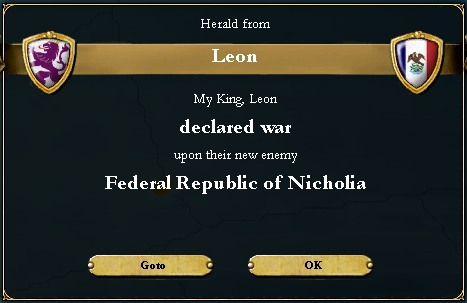
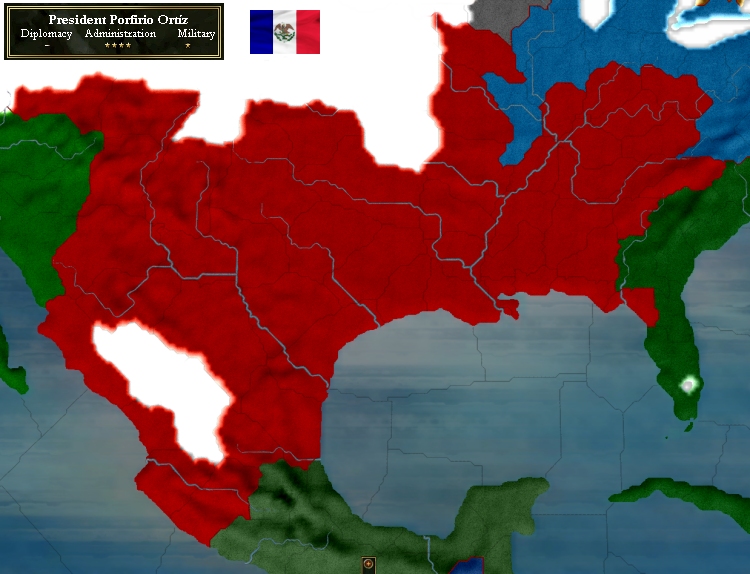
The territories had been restless for many years and Leon, it seemed, had almost already written them off as a profitable venture. Within a year they had settled a peace treaty with the Federal Republic, surprising nearly everyone.
But what was truly shocking was that their democratic brothers in the Confederacy promptly invaded their new neighbors. For years Confederate settlers had been moving into the lightly populated border territories, until they were more Scottish then Castilian. The CSN moved into to liberate 'their' citizens.
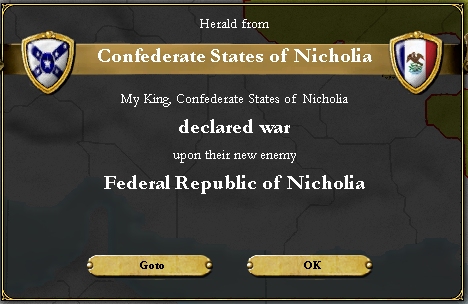
Back in the Kingdom of Jerusalem, the liberal revolts that had been burning in the countryside had finally guttered out. In 1763, King Martin IV had been forced to make certain liberal concessions. He took the opportunity to help modernize the government, finally moving away from the strict feudal system that had dominated Jerusalem for the past centuries.
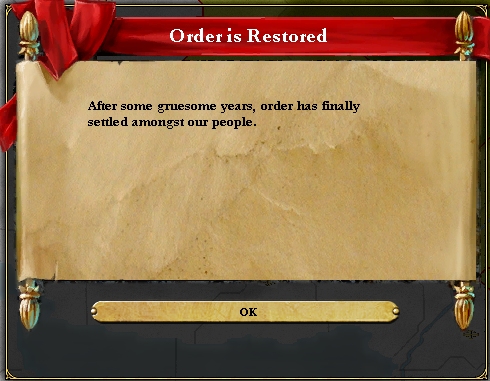
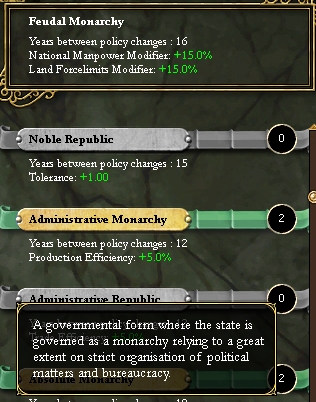
It was clear that Chinese power was on the rise in India. The giant Middle Kingdom had recently annexed the port of Baroda, on the northwest coast of India. Baroda lay directly between Jerusalem's planned route to connect her Indian colonies to the capital by land. While some in the Kingdom advocated war against these ancestor-worshiping, rice-eating, heretics, King Martin IV was wary. Ming China was such a colossus, that even if Jerusalem was to defeat it on the field of battle it would be extremely hard to force them to make any concessions.
Instead, he decided to push hard to connect to India through the much weaker native Indian dynasties, before China or Rum could block access entirely. Accordingly, Jerusalem declared war on the tiny nation of Rajputana and promptly seized half their nation.
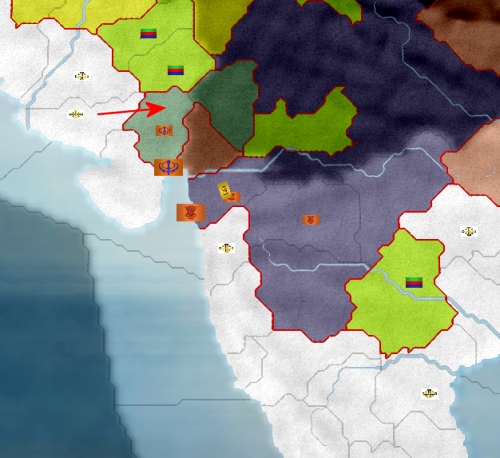
After the Prince of Rajputana had been humbled by the Christian invaders he was extremely surprised to see Jerusalem's army marching away, not west back to Christian lands, but straight east into Bihar.
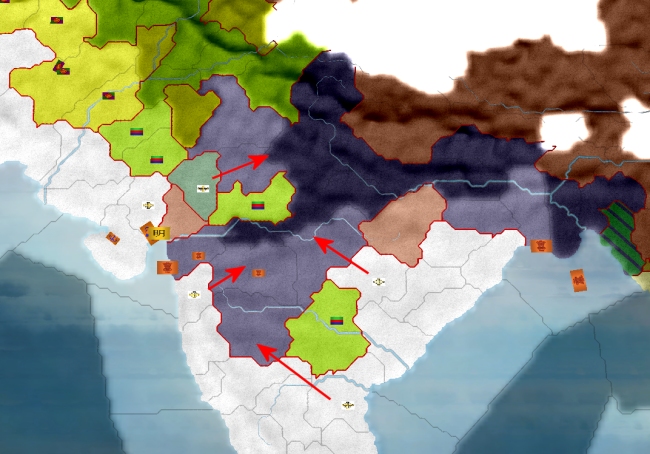
In the western half of Bihar, the war went swimmingly, and King Martin IV quickly swept away the enemies armies. In the east however, Bihar advanced slightly, overwhelming the small garrison left in north-east India. Brave as he was, the Lord of Bihar had little chance to follow up on his brief success, as the wave of Jerusalem's troops turned their full attention on him.
More troublingly, the Russian Rum was clearly recovering from the last war. By the summer of 1767 over a quarter of a million troops were encamped on the long border with Jerusalem. At least as many troops of the Kingdom watched them back across the broken mountains and windswept wastes.
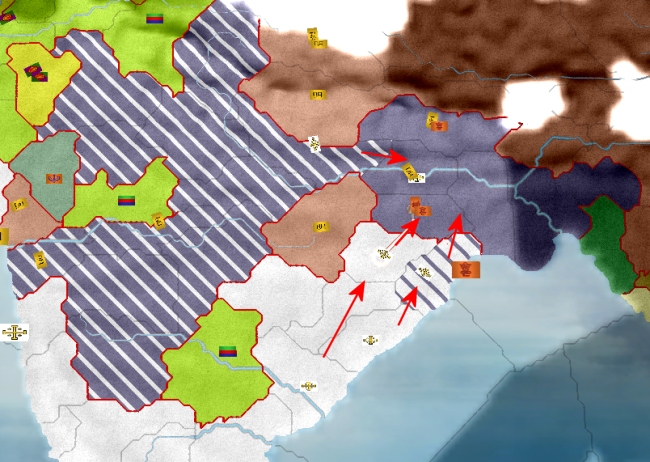
News came from Nicholia that the Confederacy had won a great victory against the Federal Republic, forcing them to cede the contested lands.
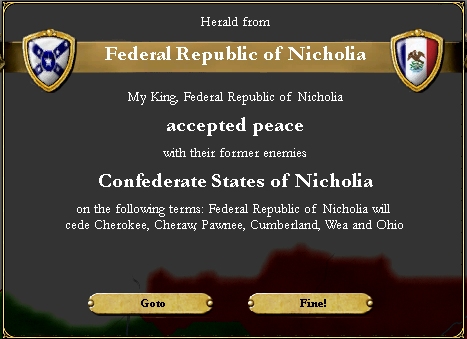
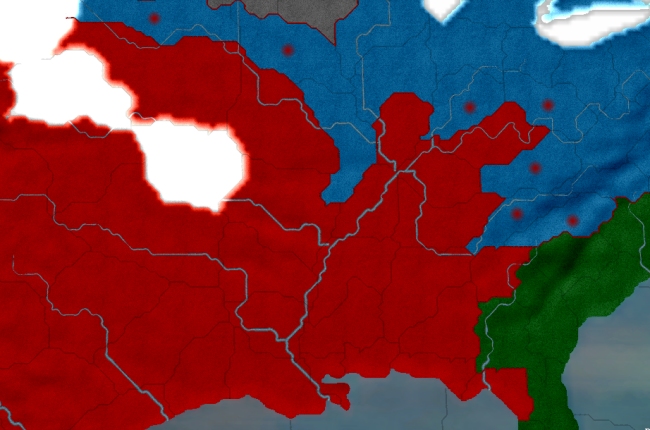
I marked the lands I know the CSN took here with red dots. They also sized an underdeveloped colony or two, I think.
Shortly thereafter, Jerusalem signed a treaty with Bihar, focusing on connecting her severed territories.
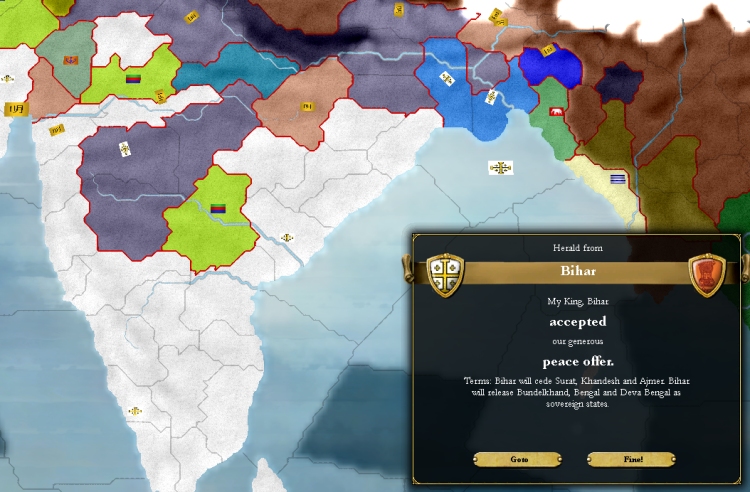
Now only China's tiny holding in Baroda kept Martin IV from realizing the dream of a land route to India.
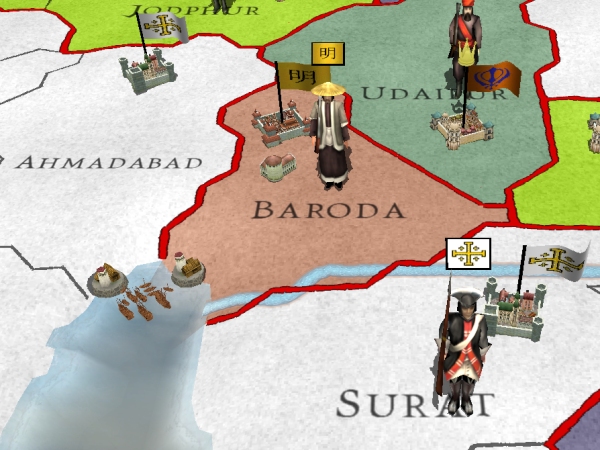
Fortunately, many in Europe were sympathetic to Jerusalem's crusade to bring the Gospel to darkest India. Martin IV managed a diplomatic coup, which greatly improved Jerusalem's reputation and helped cancel out any impression of unmerited aggression on the Kingdom's behalf.
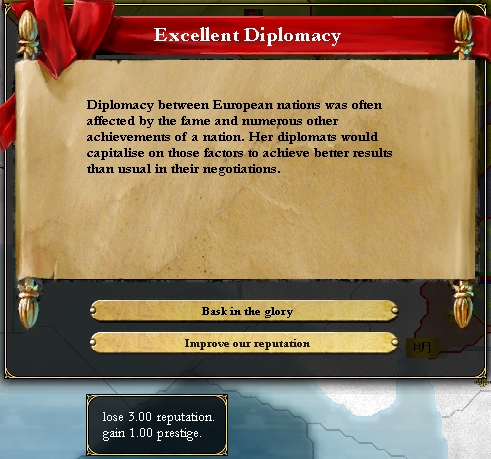
Martin IV also founded a War College in Jerusalem in late 1767, to focus on training a stronger officer corps. From now on, Jerusalem would have better military leaders.
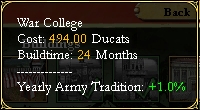
In 1769, the Byzantine Empire settled a war in Bohemia, granting them large tracts of land. Their continual aggression against the lone stronghold of the Protestant heresy remaining in Europe had become almost a crusade. Unfortunately, as Rum and Byzantium expanded in Bohemia, Orthodoxy came with them.
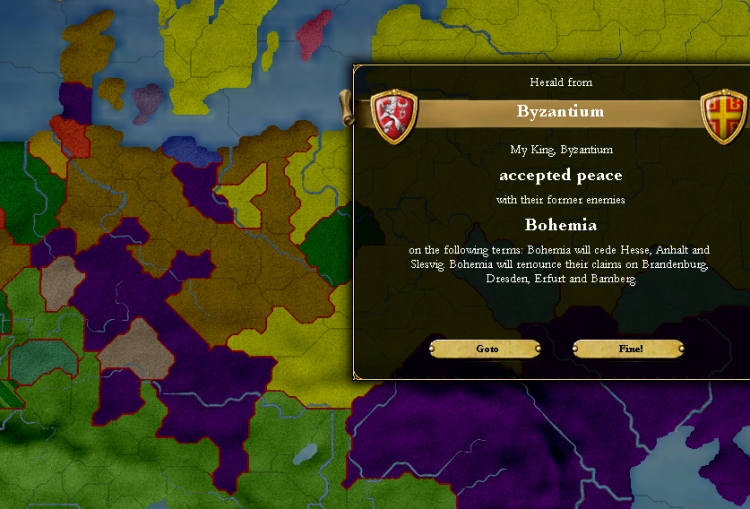
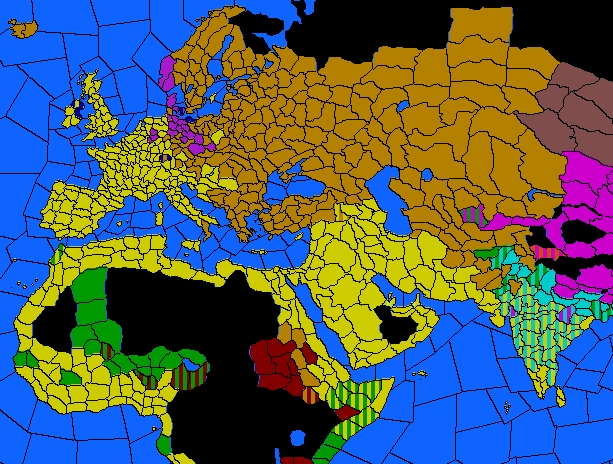
That summer, Delhi annexed the remnants of Rajputana. Martin IV decided the time had come to strike. In one war the dream could be realized. Better still, Delhi was no match at all for the focused might of Jerusalem…
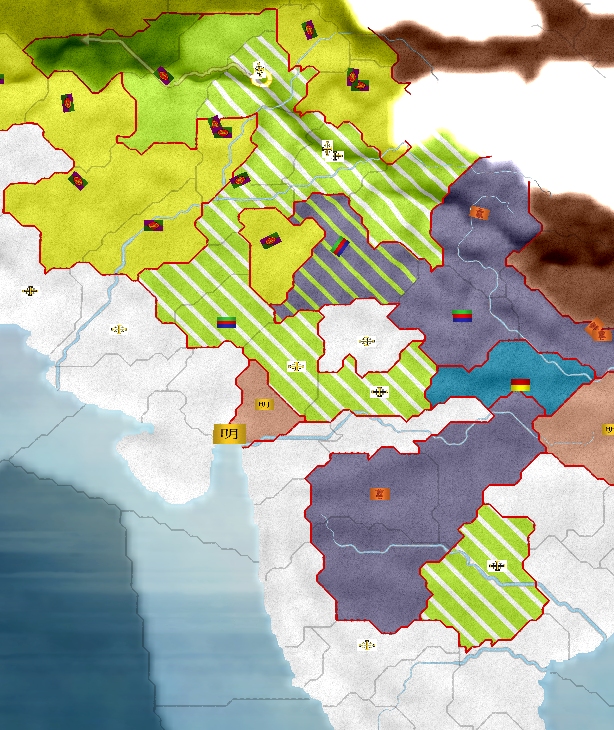
But not everyone in the Kingdom was happy about another war. Another series of liberal revolts wracked the countryside.
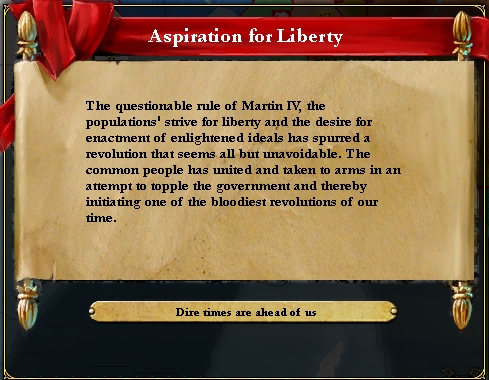
Leaving his lieutenants to deal with the liberal rebels, Martin IV continued his campaign against Delhi. Sadly, however, he would not live to see the full fruition of his dream, dying of overindulgence at a victory celebration in northern India.
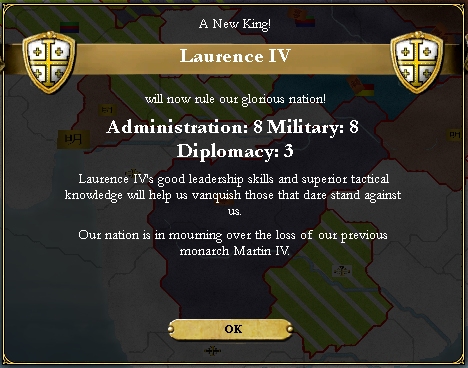
In the fall of 1770, Delhi came to beg for peace. Their armies had been shattered and their nation entirely occupied. Laurence IV was more merciful then some of his predecessors might have been.
The dream had been achieved. It was now possible for a Christian pilgrim to walk from eastern India to the Holy Cities of Jerusalem or Alexandria entirely on foot, without ever leaving the Kingdom of Christ or the well guarded pilgrim roads. Trade also prospered. As much that was carried by ship, it was now possible for huge caravans to travel freely, without ever crossing a border or paying crossing tolls. The spice could flow.
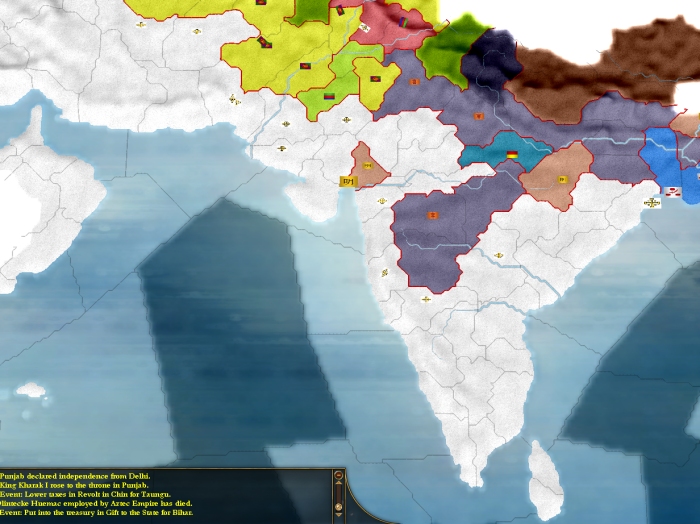
After the land route to India had been achieved, King Laurence IV turned his full attention on the liberal rebellion. Like, Martin IV, he was forced to make certain concessions, some of which were against his will. The fact was though, times were changing, and the total dominion of the Church over everyday life in the Kingdom was gradually mellowing.
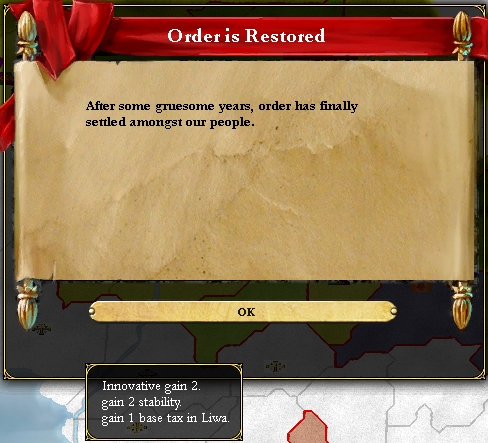
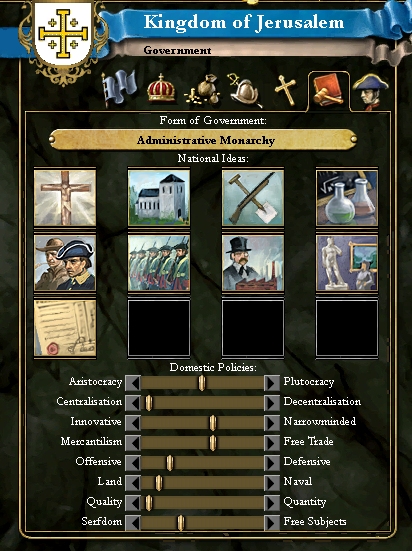
As far as I can tell, the game pretty much forces you to modernize at least a little bit. The last three liberal revolts have pushed our innovate slider nearly to the middle. I could keep pushing it back, but it would take a lot of time (I don't think I could get it there by the end of the game), cost a lot of stability, and probably get counteracted by another liberal revolt.
On July 4, 1776, King Laurence IV invaded Bihar, grabbing the last territories in the heart of India.
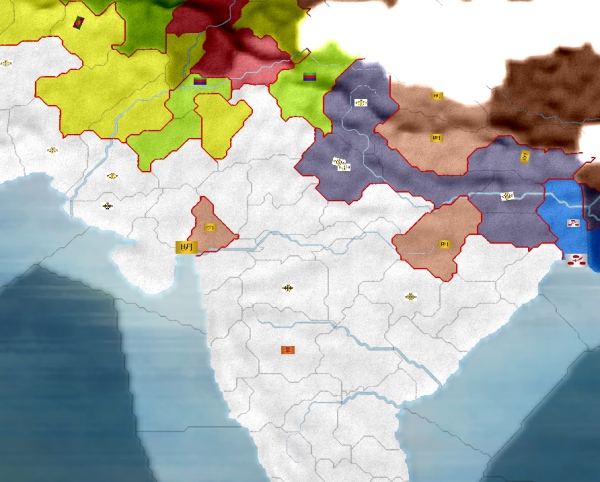
Meanwhile, the long relationship between the Kingdom of Leon and Catyluna became even closer.
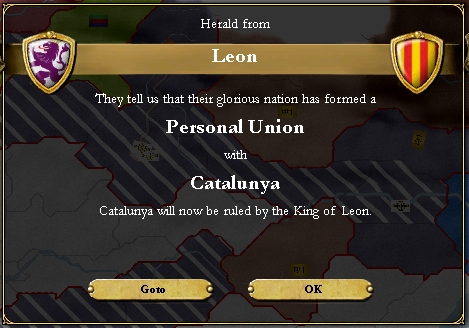
In 1777, military reforms helped to further modernized the Kingdom's armies. A native of India who had helped lead many to the true faith was also posthumously made a Saint, which would help with conversions in India.
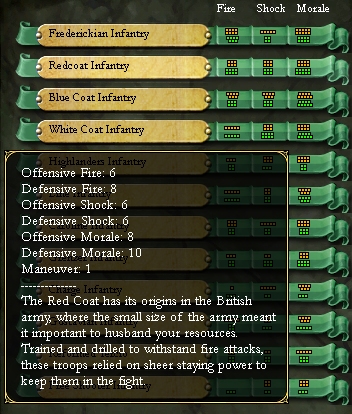
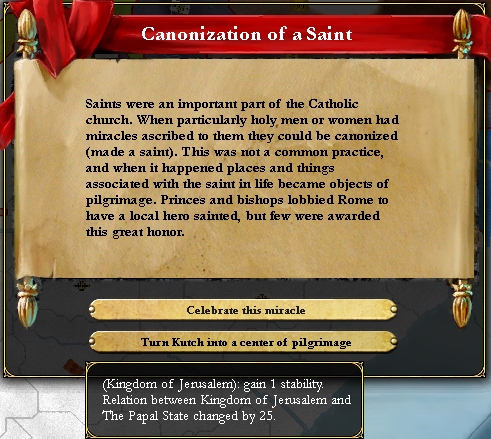
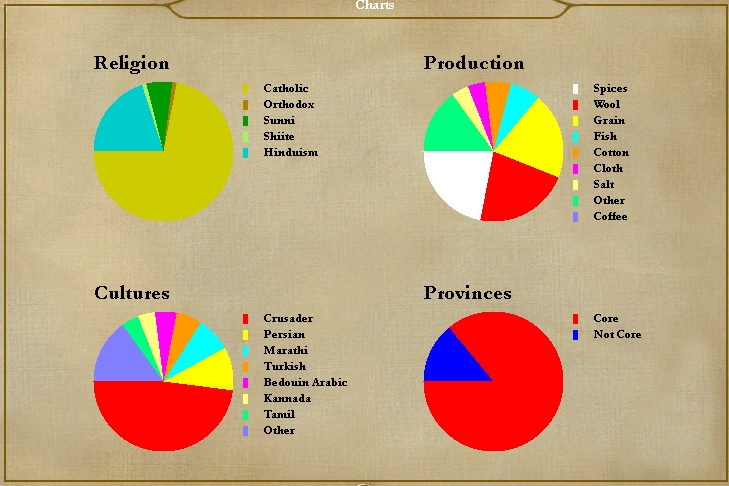
While Jerusalem celebrated, Nicholia dissolved into a series of brutal wars. The Kingdom of Leon attacked the Confederacy, but lost badly. The CSN seized many of their colonies and forced Catyluna to cede their lands in Massachusetts.
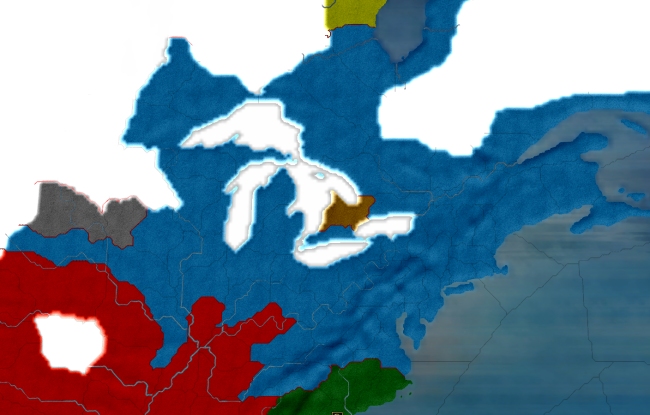
Not to be outdone by their northern neighbor, the Federals invaded Irelands holdings in Azteca and central Nicholia. The weak Irish garrisons were not able to put up much resistance.
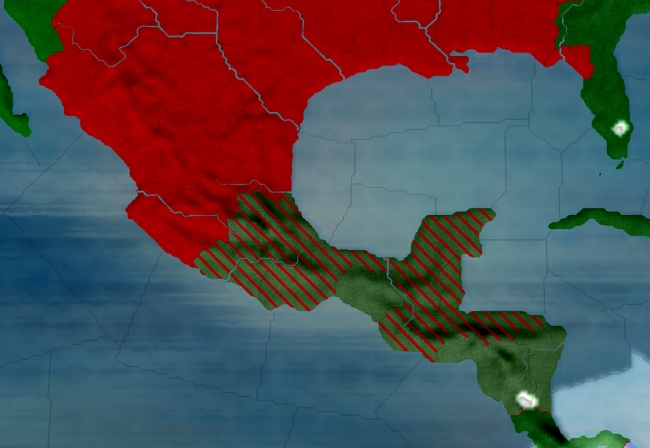
Still reeling from their loss against the Confederates, the Kingdom of Leon suffered a revolt in South Nicholia. An independent Amazonian Commonwealth revolted, throwing out the armies of the King. Although Europe's colonial powers still held a few regions here and there, the great age of Nicholian colonization was clearly coming to an end. From now on, Nicholia would determine its own destiny.
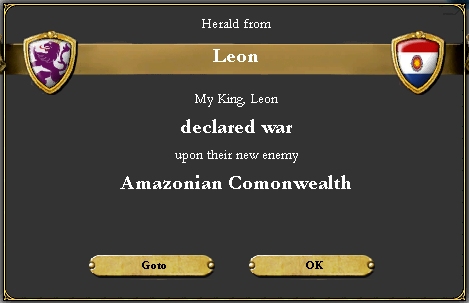
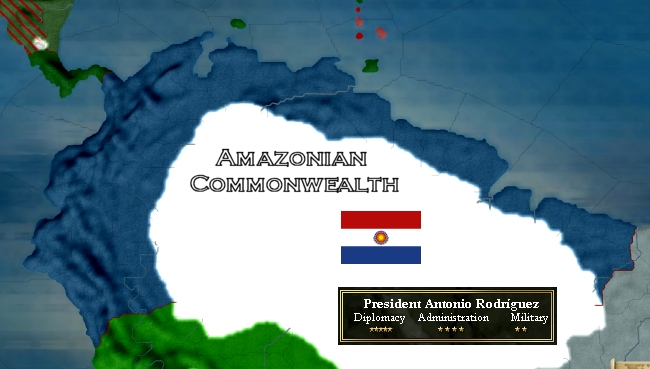
In 1783, the FRN triumphed against Ireland, and took most of their colonies.
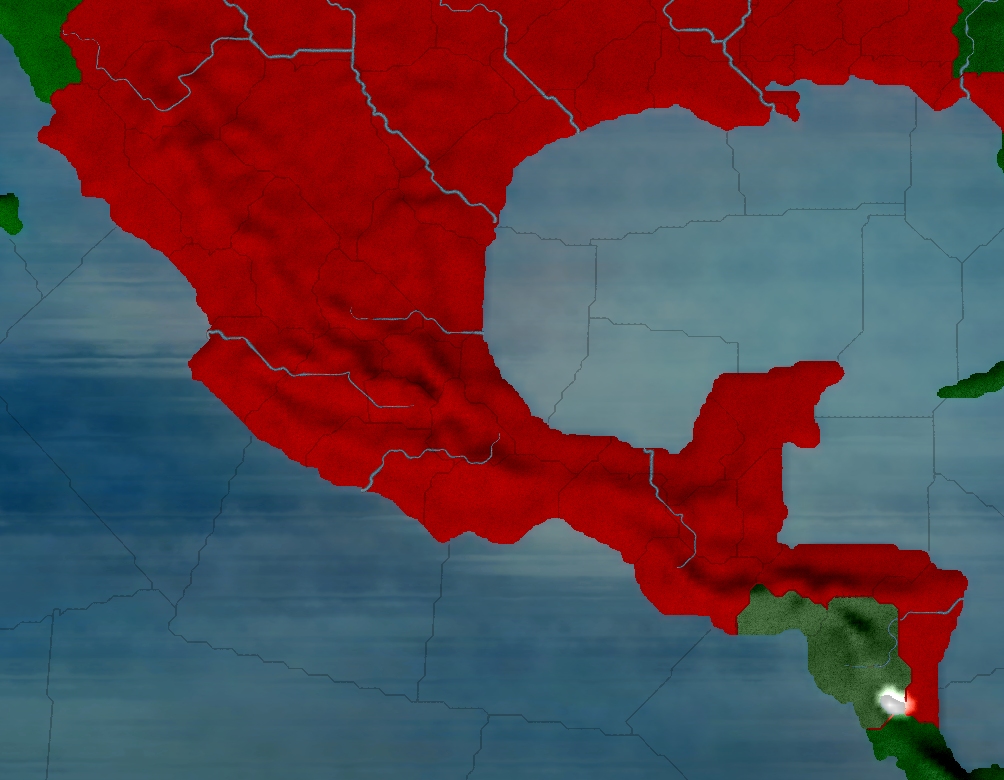
Early in the spring of 1788, an eager inventor brought a strange new device to show King Laurence IV. It was odd little stove that used steam to spin a pivoting metal ball. The inventor called it an 'aeolipile' and seemed terribly excited by it. The King thought it was an amusing little toy, and gave the man a few coins.
But it was no toy. That night, King Laurence IV died quietly in his sleep. Once again, the winds of change were beginning to blow…
